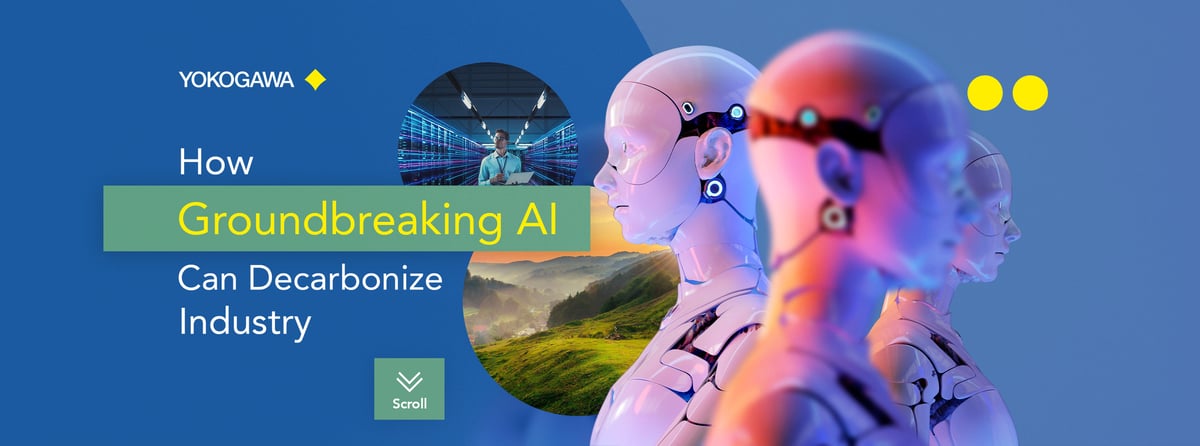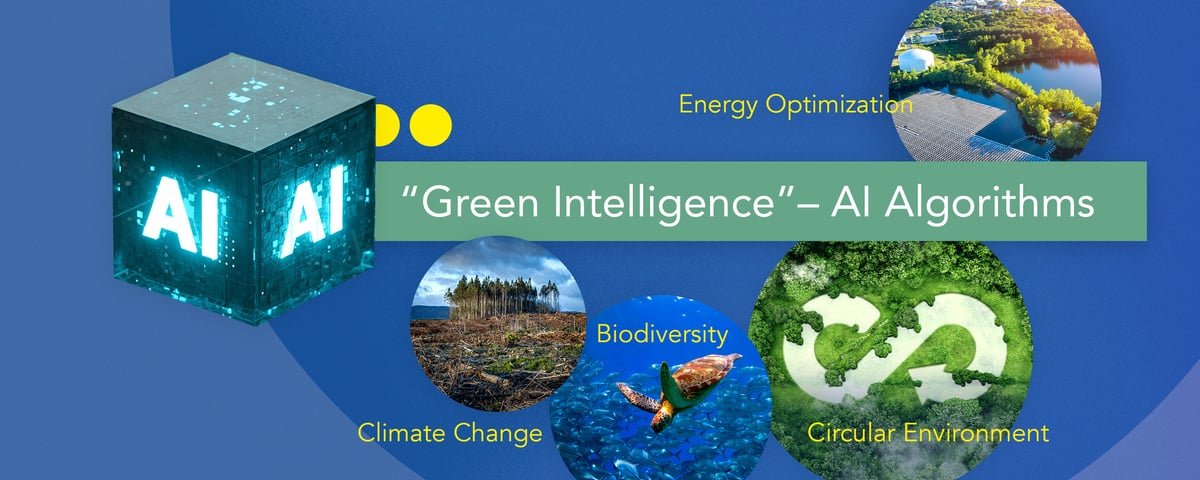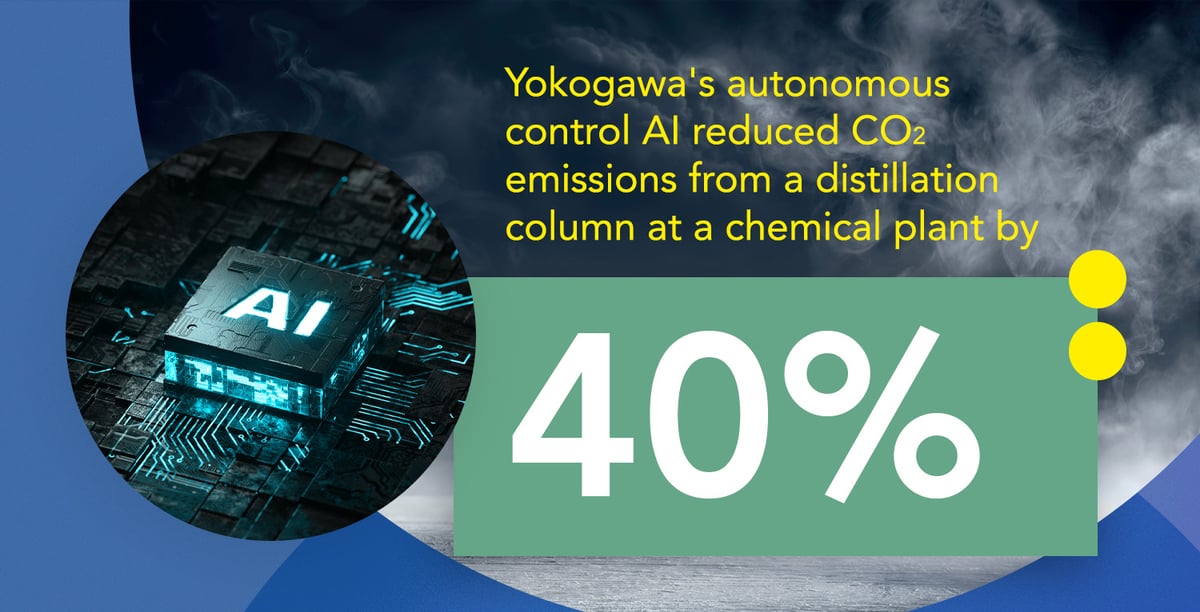
How Groundbreaking AI Can Decarbonize Industry
Over the past year, generative AI programs such as ChatGPT have dazzled millions. With their jaw-dropping ability to generate any imaginable textual and audio-visual content at the drop of a prompt, the world has woken up to the potential, and perils, of machine learning. These bots have coolly aced law and medical school entrance exams, the uniform bar, and MBA classes. They are churning out content from sci-fi novels to hip hop tracks. And their applications are seemingly everywhere: as chatbots taking orders, as avatars doing TV interviews, and as authors of “synthetic” news.
The critical question now is how we can harness its power while averting the risks: AI is expected to boost economic growth by trillions of dollars in the coming decades, but it also threatens billions of jobs.1 It promises vast efficiencies to combat climate change. Yet running AI applications often requires tremendous computing power and energy, which can drive up emissions2. AI may revolutionize education, transport, public services, medicine, and many more areas, improving the quality of life for all. But some say that, without proper safeguards, it poses an “existential risk”3.
As the debate deepens, the potential of AI needs to be properly understood, especially in terms of sustainability.
Green Intelligence
Long before the explosive rise of these consumer-facing generative AI applications, machine-learning played an important role in improving industrial processes.
The ability of AI to crunch large unstructured datasets of various processes under diverse conditions, find inefficiencies, and simulate and test solutions virtually is increasingly making it an ideal tool to optimize production. AI has been used to help prolong the lives of industrial equipment and reduce operation and management costs4. The technology also plays an increasingly critical role for reducing energy and resource consumption, and hence emissions.5
By monitoring, predicting, and reducing emissions using AI algorithms, companies can reduce their carbon footprint substantially and generate value in trillions of dollars through additional revenues and cost.6 Applying machine learning is seen now as a critical enabler for both digital transformation as well as ESG management. To this end, “green intelligence”– AI algorithms which can be used to tackle the environmental challenges of climate change, energy optimization, biodiversity, and the circular environment – will be key.

“The power of AI lies in its ability to see patterns in large unstructured datasets, and predict machine, weather, and human behavior,” explains a BloombergNEF report. “As climate and sustainability become an increasing concern for a range of industries, we would expect AI to be increasingly applied to these challenges.”7
Groundbreaking Industrial AI
One company working to optimize processes in industry through AI is Yokogawa.
Yokogawa knows that gains in output efficiency of just a few percent through optimized production for large-scale industrial plants can lead to momentous costs savings and emissions reductions. To that end, through its rich domain knowledge, the company has been developing various machine learning solutions for industry which can stabilize quality, provide predictive maintenance of facilities, and improve various industrial operations and processes. And it has focused on developing “green AI” which uses less electricity in learning and execution, as it can work with limited training data and cycles, to meet the complex requirements posed by ESG. Where usually huge computational resources are needed to run such machine learning, Yokogawa’s efficient Green AI doesn’t. Its AI-related technologies are already in use at customer sites/facilities and laboratories, as well as on Yokogawa's own production plants.8
More recently, the company successfully field-tested the world’s first AI to autonomously control industrial production.
In 2022, the groundbreaking algorithm safely controlled an area of a distillation column for a chemical plant which previously required veteran operators to constantly monitor and adjust inputs manually9. For more than a year, the AI was able to stabilize quality, achieve high yield, and save energy, without being adversely affected by changing weather conditions and atmospheric temperature. Output met rigorous standards and have been shipped. Moreover, the autonomous control AI reduced steam consumption by maximizing use of waste heat as the heat source, thereby reducing CO2 emissions by 40% in comparison to conventional manual control.

Another notable feature is its speed. Yokogawa’s AI was able to come up with an optimal solution much faster than expected, after an unprecedentedly few 30 learning cycles, despite the variety of parameters involved in the complex controls. And in an experimental furnace control test elsewhere, the algorithm was able to suppress overshoot and shorten settling time by about 65% compared to conventional control methods.
Such surprisingly efficient optimization of processes highlights the effectiveness of the AI used in these experiments, the Factorial Kernel Dynamic Policy Programming (FKDPP) algorithm. Jointly developed by Yokogawa and the Nara Institute of Science and Technology (NAIST) in 2018, it is the first reinforcement learning-based AI in the world which can be utilized in plant control. Its strengths include an ability to further automation beyond conventional control methods dealing with complex conditions, while balancing diverging targets such as stabilize quality, achieve high yield and saving energy.
"Through its autonomous control AI, Yokogawa is opening the way to the autonomization of production, maximization of ROI, and environmental sustainability."
— Yokogawa Electric Corporation
Autonomous Operations Through AI for the Planet
Yokogawa believes that achieving autonomous operations is a critical step towards smart manufacturing. It has therefore road-mapped a journey from Industrial Automation to Industrial Autonomy (IA2IA) which will guide and transform customers to realize their own vision of autonomy.
“Autonomous control AI (FKDPP) is a disruptive innovation, key to achieving Industrial Autonomy. We will accelerate its joint development with our customers around the world to enable strong and flexible production which considers the impact of differences in people, machines, materials, and methods,” the company stated.
Yokogawa believes that these steps to autonomy will help customer competitiveness, build supply chain resilience, and contribute to SDGs and ESG management. It will also end dangerous, repetitive, and onerous manual tasks of plant operators, freeing them up to focus on more creative and value-added ones.
Although the behind-the-scenes industrial AI that Yokogawa is developing has not captured the public imagination as much as ChatGPT and other consumer-facing AI, it is arguably as much, or even more, vital. For it promises to revolutionize industry and our physical world, delivering a green transition towards sustainable growth.
